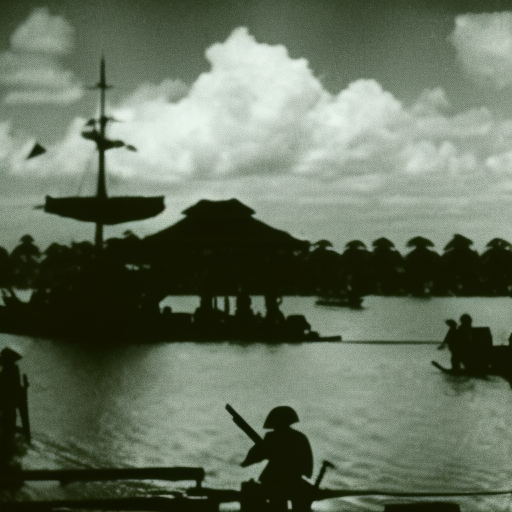Battle of Mactan: The Defeat of Ferdinand Magellan
The Battle of Mactan was a significant event in Philippine history that took place on April 27, 1521. It marked the first recorded resistance of the indigenous people against European colonization. The battle resulted in the death of the Portuguese explorer Ferdinand Magellan and a victory for the native chieftain Lapu-Lapu.
Background
Ferdinand Magellan, a Portuguese explorer sailing under the Spanish flag, set out on a voyage in 1519 to find a western route to the Spice Islands. He arrived in the Philippines in March 1521, hoping to convert the local inhabitants to Christianity and establish Spanish influence in the region. Magellan’s arrival was met with mixed reactions from the various indigenous tribes.
The Encounter
On the morning of April 27, 1521, Magellan and his crew landed on the island of Mactan, located in present-day Cebu, Philippines. They were met by a group of warriors led by the native chieftain Lapu-Lapu. Magellan, underestimating the strength and determination of the indigenous people, decided to engage in battle.
The Battle
Magellan and his men, armed with swords, muskets, and crossbows, advanced towards Lapu-Lapu’s forces. However, the warriors of Mactan were well-prepared and fought fiercely to defend their land. They used traditional weapons such as spears, bows, and arrows, and employed guerrilla tactics to their advantage.
During the battle, Magellan was struck by a poisoned arrow and severely wounded. Despite his injury, he continued to fight until he was overwhelmed by the sheer number of native warriors. Magellan’s death marked a turning point in the battle, as his men, demoralized and outnumbered, retreated to their ships.
Legacy
The Battle of Mactan had significant implications for both the Spanish and the indigenous people of the Philippines. It demonstrated the resilience and determination of the native population in resisting foreign colonization. The defeat of Magellan also highlighted the limitations of European military technology against indigenous guerrilla tactics.
Lapu-Lapu, the victorious chieftain of Mactan, became a symbol of Filipino resistance against foreign domination. He is revered as a national hero in the Philippines, and his name has been immortalized in various ways, including a city named after him and a statue erected in his honor.
The battle also had broader consequences for European exploration and colonization. Magellan’s death meant that his original mission to find a western route to the Spice Islands was not fulfilled. However, his surviving crew members, under the leadership of Juan Sebastián Elcano, completed the circumnavigation of the globe, proving that the world was indeed round.
Conclusion
The Battle of Mactan was a pivotal event in Philippine history, marking the first recorded resistance against European colonization. The defeat of Ferdinand Magellan by Lapu-Lapu and his warriors demonstrated the strength and determination of the indigenous people. The battle’s legacy continues to be celebrated in the Philippines as a symbol of national pride and resistance against foreign domination.












